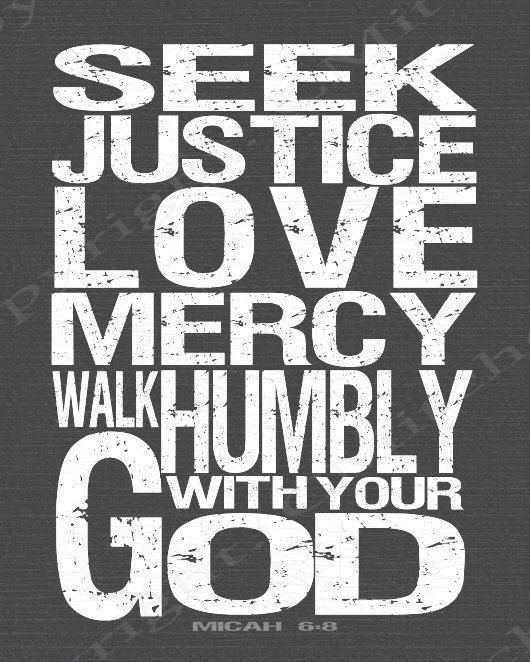The Chabad site has this short excerpt of Jeremiah on the Haftorah for the Torah Portion Tzav:
This week’s haftorah touches on the subject of sacrifices, the main topic of the week’s Torah portion.
G‑d tells the prophet Jeremiah to rebuke the Jewish people, saying that His primary intention in taking their forefathers out of Egypt wasn’t the sacrificial offerings, rather in order that they observe the commandments. But despite the fact that G‑d repeatedly dispatched prophets to admonish the people, “They did not obey nor did they incline their ear, but walked according to [their] own counsels and in the view of their evil heart, and they went backwards and not forwards.” G‑d further informs Jeremiah that the people will also not hearken to these words that he will speak to them now.
The haftorah concludes with G‑d’s admonition:
“Let not the wise man boast of his wisdom, nor the strong man boast of his strength, nor the rich man boast of his riches. But let him that boasts exult in this, that he understands and knows me, for I am Yehovah practicing grace, justice and righteousness on the earth; for in these things I delight, says Yehovah” – Jeremiah 9:22-23
‘… grace, justice and righteousness …’ – we hear here the call of Micah in Micah 6:8 and the call of Yeshua in Matthew 23:23b.
These really are the core or ‘weightier’ elements of Torah:
“Woe to you, experts in Torah and you Pharisees, hypocrites! You give a tenth of mint, dill, and cumin, yet you neglect what is more important in the Torah —justice, mercy, and faithfulness! You should have done these things without neglecting the others.” – Matt 23:23
Grace (mercy), justice and faithfulness (righteousness). These three – we, like Yeshua and like Yehovah are to exercise grace – to show kindness, to love kindness, and in doing so to overflow with love. Like Yeshua and Yehovah we are to exercise judgement and discernment, to exhibit fairness in all our actions. And also like Yeshua, we are to have faithfulness or trust in Yehovah, such faith being displayed in our acting within the bounds of Torah, in being obedient to Torah, and through this trust acting righteously.
Everything else can be built on this core and in exercising these foundational truths, we can help repair a broken world and raise up truth-seekers.
I have briefly addressed Micah in a number of articles and one of the insights that I think is most salient is that we are called to love being kind. Not just being kind, but to love acting this way!
In part I wrote:
“… But note that if we use the translation ‘loving-kindness’ in particular to help us see the full picture here, we have the injunction that we are called to ‘love loving-kindness’.
We are to love showing and giving grace; to love acting with mercy, to LOVE being kind. We are not to just BE kind, but to LOVE being kind!
Kindness, mercy, grace should be so much a part of our heart that we can’t help practicing this attribute of the Almighty whose image we are made in! You may ask ‘How do we get this way if we are not already in this place?’ I think part of the answer is to act as if our heart already loves being kind and gracious and full of compassion, and therefore we must do acts of loving kindness. It’s almost like ‘fake it to you make it’.
The more we act this way, the more the neural pathways in our brains will be stimulated to create a new pathway of truth and a new mindset, and a new heart, where we increasingly become ‘lovers of loving-kindness’.
In other words, in living this call we in fact circumcise our own hearts! (Deuteronomy 10:16, Jeremiah 4:4).” – from https://globaltruthinternational.com/2015/04/02/love-loving-kindness-micah-68/
Can you also hear an echo of Micah and Jeremiah in the words of Ya’acov (James): “So speak and so act as those who are to be judged under the Torah of liberty. For judgment is without mercy to one who has shown no mercy. Mercy triumphs over judgment.” James 2:12-13.
At the very least any sense of humility and working out our salvation in fear and trembling as extolled by the Apostle Paul should lead us to conclude that the showing of mercy, of grace to others could well prove to be of benefit to ourselves when the great Day arrives.
Grace though is such an important cornerstone that we should always be prepared to revisit it’s meaning and ramifications.
In the Talmud, there is a very famous statement that: ‘The world rests upon three things: Upon Torah study, upon Divine service (i.e., prayer and sacrifices), and upon the practice of chesed (grace). – Pirkei Avot (Ethics of the Fathers) 1:2
It appears that the third of these pillars is derived from Psalm 89:2, so that we can say “And upon the practice of chesed (grace)” – as it is written, “The world will be built through kindness (grace)”. That is, it is man’s practice of grace in his dealings with his fellow man that truly creates and sustains the world. It is man’s practice of grace that most perfectly embodies his being made in the ‘image of God’.
It was the ‘overflowing love’ (grace) of the Almighty that created and continues to sustain the world, and it is the ‘overflowing love’ (grace) of mankind that day by day and moment by moment creates and sustains a world worth living in!
Every day we can all play a part as we seek more and more to love being kind and showing overflowing love, and as we seek to walk in absolute trust (faithfulness) of Yehovah’s Instructions for us.
As the Apostle Paul (Rav Sha’ul) explains, let us all seek to have the same trust, the same faith in Yehovah that Yeshua had (‘The Faith of Yeshua – What’s in a word?’).
For more on grace please see my article: ‘Amazing Grace’.




